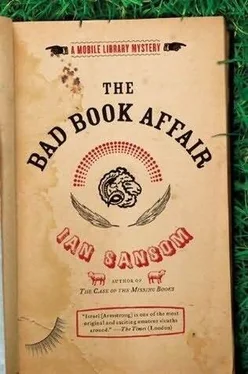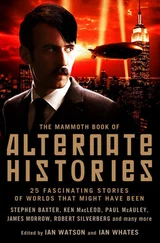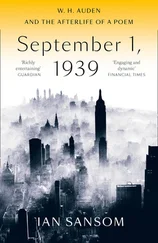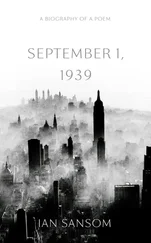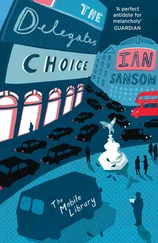Maurice’s house was out in the country, but not so far out in the country as to be actually in the country; Maurice did not appreciate or enjoy the actual rural. He was uncomfortable with the country: he didn’t enjoy the solitude or the silence. He didn’t like mud and mess. He just couldn’t identify with trees and hedges and tillable land: you got nothing back from them; they just were. To Maurice, the countryside represented opportunity and potential, rather than being an entity in and of itself. To Maurice, the countryside was a suburb in waiting. Where his wife saw bosky woods and thickets, and the seasons and little creatures and leaves changing color, Maurice saw culs-de-sac-to-be, and opening-soon light industrial units thronging with people happily at their work. Maurice needed people as much people needed him: his every landscape, internal and external, imaginary and real, was a landscape with figures.
The house itself-“The Grange,” as Maurice had styled it-was an old farmhouse that had been ambitiously extended and expanded over the years until it resembled now more a luxury gated community or a compound than a family home: it was a house that implied other people. What had once been outbuildings now housed rooms for guests and entertaining and playing games in, though the family rarely played games or entertained or had guests. The barn was an office, which Maurice Morris rarely used, preferring always to be out meeting people. And the stables housed a horse that their daughter no longer rode. Only the old grain store, which had been turned into a light-filled artist’s studio for Maurice’s wife, Pamela, saw much use, though Pamela hardly ever made any actual art in it: she would sit, rather, and smoke and drink coffee and stare out at the surroundings, as though perhaps they might inspire her to rediscover whatever it was she seemed to have lost during the past twenty years of her marriage to Maurice Morris.
The house was surrounded on three sides by green fields and faced out on the other to the chill Irish Sea. The only approach was a long, sweeping drive, whose uniform, loosely crunching gravel gave Maurice perhaps more pleasure than any of his other achievements: to have your own long, sweeping crunchy gravel driveway! He had even gone so far as to plant lime trees to line the drive, which, though only now semimature, gave the requisite impression of approaching a stately home in the south of England rather than a coastal farmhouse in Ireland. If this was not one of the finest homes in County Antrim then Maurice Morris didn’t know what was. There was an indoor swimming pool, a dedicated golf simulator room. Even the kitchen-which had once been the old coach house-was a work of art, specced out to the highest standards imaginable and perhaps a little more, for who in their right minds could possibly imagine a use for a gas-fired Aga, and an eight-burner (plus wok burner) range cooker, and a wine cooler, and a fridge freezer the size of a closet? Not Maurice and Pamela. They ate mostly takeaways and prick-the-plastic ready-meals.
Maurice looked away from the breakfast news lady and gazed out to sea. He’d considered having a helipad built out on the lawn, but his wife had felt it was vulgar, so that had been that. It was probably the right decision: the helicopter would have obscured the view. The sun was shining this morning-the sea looked like diamonds-and Maurice had been up since five, dealing with correspondence. This was one of the secrets of his success-by seven o’clock he had a two-hour lead on most of his rivals. Sitting on a stool at the breakfast bar, plasma screen to the left of him, diamond ocean to the right, two hours of good honest work behind him, Maurice Morris was the master of all he surveyed.
He was scanning the newspaper headlines when his wife appeared. She was still in her pajamas, and her hair was scraped back, and she was thus far, at this hour, without makeup, but she still looked younger than her fifty-five years; she was lucky enough to have been blessed with a sharp chin and a firm jaw and piercing eyes, precious gifts to the woman in middle age, almost as precious indeed as a husband ready and willing to help her keep body and soul together and topped up with Botox and unguents and herbalistic creams. She was also possessed, Mrs. Morris, of a kind of natural, shocking vitality, the vitality of a tigress ready and willing to pounce at any moment but also, more importantly, to protect herself and her family from anything and anyone. If Mrs. Morris had purred and patted you down with a big taloned paw, you wouldn’t have been surprised. As it was, she sighed and poured herself a cup of coffee. Maurice didn’t look up. She sat herself down at the opposite end of the breakfast bar and lit a cigarette.
“Would you mind?” said Maurice, without looking up.
“What?”
“Not.”
“What?”
“Smoking.”
“And good morning to you too,” said Mrs. Morris.
“Outside at least?” said Morris.
“In my own house I’ll smoke where I want.”
“The smell lingers,” said Maurice. “People can smell it on my suits.”
Mrs. Morris chose not to respond.
“Have you called her?” said Maurice.
“Yes.”
“I’m away here in half an hour,” said Maurice. He batted away the smell of smoke. “Sleeping late again.”
“It’s a Saturday, Maurice.”
“She has hockey.”
“She’ll be down in a minute. She’s probably having a shower.”
“If she’s expecting a lift-” said Maurice.
“I can take her in later,” said Mrs. Morris, taking another long draw on her cigarette.
Maurice tutted.
“She shouldn’t miss breakfast,” he said.
“Relax, Maurice. She won’t miss breakfast.”
“Most important meal of the day,” said Maurice. “You can’t expect to perform at your best if you haven’t-”
“She’ll be fine,” said Mrs. Morris. “Stop fussing.”
“If you want to be on the top of your game you need to-”
“We’ve heard it all before, Maurice,” said Mrs. Morris.
“Fine,” said Maurice, looking at his watch. “Twenty-five minutes, or I’ll be late.”
“For what?”
“It’s a breakfast meeting.”
“At the golf club?”
“That’s right.”
Mrs. Morris snorted.
Maurice liked to get together every weekend with a few friends and fellow businessmen to play golf and to laugh loudly at one another’s slightly off-color jokes and to sit in the club house and enjoy a few drinks. This was Maurice’s downtime, among men who never spoke of their emotional lives or of their families-companions rather than friends. People you could trust; people you could do business with.
They sat and sipped coffee in silence.
“I met the librarian yesterday,” said Maurice.
“The who?”
“The librarian who’s been lending her those books.”
“What books?”
“Those books she’s been reading.”
“What books are you talking about?”
“Adult sort of books.”
“Adult books?” Mrs. Morris’s eyes flashed, and she raised an already raised and plucked eyebrow. “She’s not mentioned any adult books to me.”
“I don’t mean that sort of book. I mean…not children’s books.”
“Maurice! She’s not a little girl anymore.”
“I know she’s not a little girl anymore.”
“So. She can read whatever she likes.”
“I don’t think she should be able to read whatever she likes.”
“Why not?”
“She’ll get ideas.”
“What sort of ideas?”
“About…things. You know.”
“Don’t all books have ideas, Maurice?” Mrs. Morris sighed.
“Yes, but I mean ideas about…sex.”
“Chip off the old block, then, eh?”
Maurice reddened: being reminded of his infidelities was the one thing that could cause him embarrassment.
Читать дальше
Конец ознакомительного отрывка
Купить книгу
